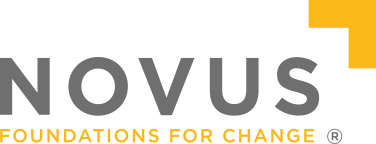Purposeful Activity Benefits Prison Learners and Society
Adult Provision Youth Provision

Engaging learners in purposeful activity whilst in prison is integral to their successful rehabilitation. For learners, purposeful activity helps them develop new skills, boost confidence and self-esteem, and improve mental wellbeing, setting them up for success upon release.
However, purposeful activity can also have a positive impact on society as a whole. With learners engaging in purposeful activity whilst in prison, it can increase their chances of successful rehabilitation, in turn reducing the reoffending rates and creating safer communities.
Engaging learners in purposeful activity is crucial for their successful rehabilitation, which is why at Novus, we try to engage as many learners as possible in education and training.
What is purposeful activity in prisons?
Purposeful activity refers to the structured and meaningful programmes and services that learners can engage in whilst in prison. These programmes and services are designed to help learners develop skills, improve their mental health and well-being as well as contribute to a learner’s successful rehabilitation.
There are various purposeful activities that learners can engage in whilst in prison including:
- Education and training
- Vocational training
- Paid Work in prison
- Rehabilitation programmes
- Physical exercise and mental health and wellbeing support
At Novus, we deliver education and training to learners across prison establishments in the UK and Wales. Education, training, vocational work and enrichment are considered purposeful activities as they help learners develop skills, improve employability for offenders and reduce reoffending.
Education and training
We provide education and training programmes to equip our learners with the skills and knowledge needed to be successful upon release.
Our prison education offer varies in our different locations to meet the demands of the region; however, we offer several key courses that make up our education provision that are available in all prison establishments where Novus operate in. These are:
- English and maths
- Digital Skills
- Vocational training
- Creative enrichment
English and maths
English and maths are essential skills needed to find employment upon release and be successfully rehabilitated. However, many individuals who end up in prison have low abilities in these key areas which can make it difficult to find employment opportunities upon release without turning to crime.
By improving their confidence, ability and functional skills in English and maths, we help learners close their skills gaps so they can find and retain work that keep them from re-offending upon release.
Digital skills
With digital technology evolving at an incredible pace, learners are at risk of being at a digital disadvantage upon release. In order for learners to reintegrate back into society, it is vital that they are given the opportunity to gain and expand their skills in digital literacy.
Learners need to be equipped with the right knowledge, skills and qualifications in essential digital skills, to navigate life outside of prison, as well as find employment upon release.
Vocational training
Our vocational and technical training provision provides learners with the industry-relevant skills and experience needed for their chosen career path, helping learners to move into work or further training upon release.
Learners work towards nationally recognised qualifications, with embedded English, maths and employability skills available for those learners who need extra support, so they can develop a holistic skill set required by employers. Employment and further training are also promoted through our delivery enabling learners to return to the community motivated, skilled, and ready for work.
Our vocational provision varies from prison to prison, but some of the main vocational courses that we offer include:
- Catering
- Hair and beauty
- Barbering
- Bricklaying
- Engineering
Creative enrichment
Our creative enrichment provision is also a key area of our education offer. Our creative enrichment provision is crucial in allowing us to provide a broad curriculum offer, enabling us to enrich learner’s experiences and deliver quality opportunities.
It also allows us to engage learners in new ways, often those who have had a bad relationship with education i.e., bad experiences in school or lack of support when in the education system at a young age. By engaging learners in education via creative enrichment projects and initiatives, it helps them build positive relationships and a joy for education, inspiring them to continue their education journey and gaining the relevant skills and qualifications needed to be successfully rehabilitated upon release.
Purposeful activity and learner development
Personal development and confidence building
By engaging in purposeful activity such as education and training, learners can gain new skills and qualifications needed to find employment upon release and be successfully rehabilitated. However, engaging in education and training goes beyond that, it can also foster personal development, foster increased self-esteem and positive behaviour as well as increase confidence.
If learners, who previously faced barriers to accessing education, are able to engage in prison education as well as gain new skills and qualifications, it will improve their confidence and belief in themselves and show them what they are capable of. Learning new skills boosts self-esteem and gives learners a sense of achievement that they may not have experienced before, motivating them to make a positive change.
Education and skills development
According to research, 47% of prisoners entering prison lack any previous qualifications. Encouraging prisoners to take part in our education provision is crucial in supporting them to find employment upon release and gain the skills and knowledge necessary to thrive in society.
Through our education provision, learners are able to gain new skills and qualifications helping them to find employment upon release. Having access to higher education and vocational training e.g., Hospitality, barbering, construction etc. also provides practical skills and real working experience, further equipping learners with the skills needed to be successfully rehabilitated.
Social development
Taking part in purposeful activity such as education classes will also enable learners to develop socially. By interacting with peers and teachers, in education classes learners are able to develop key social skills such as teamwork, problem-solving and communication skills.
Being successfully rehabilitated goes beyond just having the right qualifications and technical skills to find employment upon release. In order for learners to find long-term employment and successfully reintegrate into society they need to have the right social skills to be able to thrive in society.
Cultural development
Through our creative enrichment provision, learners are able to develop their cultural capital. Cultural Capital refers to “a person’s knowledge of connections and references we make to the wider world, giving opportunities to access new concepts and experiences and to encourage learners to develop new interests. Developing an individual’s cultural capital empowers them to confidently participate in life in modern Britain and become well-rounded members of society”.
Creative enrichment introduces learners to different cultures, traditions and histories broaden their world view and encourages an appreciation and respect for different cultures and communities.
By exposing learners to different histories, traditions and perspectives, learners are able to understand the world beyond their own experiences as well as being respectful and tolerant of others. Cultural activities bring together learners from different backgrounds, fostering inclusivity and mutual respect which are valuable skills that can be utilised upon release.
Purposeful activity in prison and learner mental health
According to research conducted by the centre for mental health nine out of ten prisoners are thought to have at least one mental health or substance misuse problem. Addressing the mental health and wellbeing of learners and providing them with the support and services necessary is significant factor to their successful rehabilitation.
Prison can be an isolating and lonely experience, however engaging in purposeful activity whilst in prison, provides structure and routine which helps to reduce stress, anxiety and depression. Engaging in our education services, shows learners that they can engage in meaningful work and activities, showing them that they can contribute positively to society and boosting their self-esteem and sense of purpose, positively contributing to their mental health and wellbeing.
Purposeful activity such as creative enrichment can also provide a positive outlet for expressing emotions, trauma and frustration reducing anxiety and improving the overall mood of learners.
Social benefits of purposeful activity in prison
Purposeful activity in prisons not only benefits the learners but also benefits their families and society as a whole by reducing crime, promoting rehabilitation and fostering safer communities.
Strengthens family and social bonds
Research suggests that learners who maintain positive family relationships are less likely to reoffend upon release. For learners to be successfully rehabilitated, they need to have a good support system in place before they are released from prison. Education and enrichment programmes encourage learners to maintain and rebuild family ties so that they have a support system in place upon release from prison.
Reduces cost to society and fosters safer communities
Purposeful activity is a key contributor to a learner’s successful rehabilitation. By engaging in education whilst in prison, learners can gain the skills and qualifications needed to find employment upon release and be successfully rehabilitated.
Research conducted by the Ministry of Justice found that “people who had participated in education whilst in prison were significantly less likely to reoffend within 12 months of release than those who had not”. Prison education plays an integral role in reducing reoffending rates which can have a positive impact on the community. Reducing the reoffending rates and the number of individuals returning to prison, means that the financial burden on taxpayers would significantly reduce as a result.
Purposeful activity in prison can also help to foster safer communities. Through successful rehabilitation individuals are able to contribute positively to society instead of turning back to a life of crime, lowering crime rates and as a result, making communities safer.
At Novus we understand the importance of purposeful activity and the positive impact is has on learners and society as a whole. By focusing on prison education, skill building, and positive provisions for learners, we’re helping to create opportunities for learners that will contribute to their successful rehabilitation.
If you’d like to learn more about how we’re driving positive change in prisons or explore ways to support our work, get in touch with us at Novus today.


